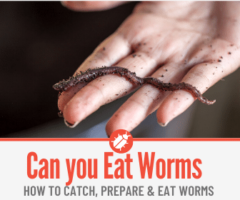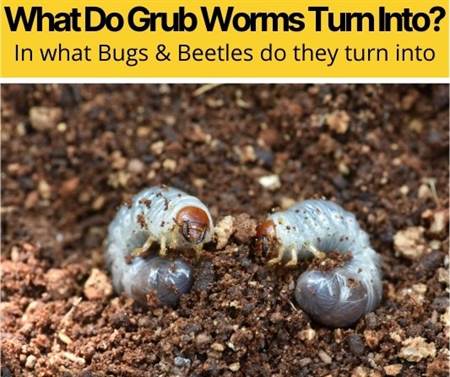 Most cats will suffer from worms at some point during their lifetime, and it is a huge worry for the owners!
Most cats will suffer from worms at some point during their lifetime, and it is a huge worry for the owners!
One main question a lot of people have is Can worms kill cats?
We will see not only how Dangerous can Tapeworms, Roundworms or Hookworms be for your cat, but also how to deal with them,see how problematic they can be for young kittens and If your cat is experiencing any Pain if it have worms.
Can Your Cat Die From Worms?
Worms are contagious and can cause your a cat a lot of serious damage,in very extreme cases your cat can even die if left untreated. There are many types of worm related infections, your cat can get.
Worms are mainly caused via poor sanitation and other sources of bacteria. These include Faeces and areas outdoors.
Can Tapeworms Kill A Cat
Tapeworms are a nasty parasite! They can grow up to 25 meters in length and can out-live the cat as its life expectancy is 25 years! Fortunately, these worms also infect a lot of humans- meaning a lot of research has gone into these, and plenty of easy, quick cures have been created! I mean, you can kill a tapeworm in your cat within 24 hours!
The good news is, finding a tape worm early is so easy to kill- you most likely won’t have to take your fury friend to the vet! Unfortunately, finding out how your cat has tape worms is hard and disgusting.
To find out, you must examine your cat’s faeces and anus. You must do this when the cat is relaxed or sleeping. If you see small white bits which look like sesame seeds or rice grains- they are worms, meaning your cat has a tape worm!
You won’t see this straight away when the cat gets infected, however you should start becoming suspicious if your cat is eating more and feeling hungry- not putting the weight on.Furthermore, the cat may moan more in pain and may feel very sick- it may become less active; that is when you need to take this seriously, and start checking out the cat.
If the cat is left untreated, the tapeworm will grow and populate. This can lead to anaemia which is caused by blood loss, or blockages within the intestines due to the number of worms in there.
This can block vital archery’s and cause some muscles not to get any blood at all! Furthermore, the worms may reach the brain, the heart of the lungs. If this happens, there is a high chance your cat will die! Luckily, this will only happen if the cat is left untreated for a while.
To prevent tapeworms, clean the litter tray regularly. Do not leave food lying about for days either! Make sure your cat has its worm injections, so it can fight off any infections the tapeworms may give, as an injection creates the antibodies needed to fight them off.
Can Roundworms Kill A Cat
Roundworms are not harmful to grown healthy adult cats- however can be to younger cats (kittens), cats with health conditions and older cats. Common signs of mealworms are constant diarrhoea and vomiting as well as a poor appetite- leading to weight loss, a dull coat and poor growth.
These worms are a lot smaller than tapeworms. They are brownish-yellow bodied worms, which can grow to a length of 10cm. These worms can also reside in the lungs, due to larval migration. When this happen, the cat will start to cough a lot more- trying to get the larva out of its lungs.
If left untreated, the worm larva will build up in the lungs, and may prevent the cat from breathing or cause anaemia.
A simple way to prevent roundworms, is to make sure you cat is vaccinated. This will make sure worms don’t get into your cat as easily and that if they do get in- the cat has anti-bodies to fight them off.
Treating roundworms is extremely easy, as you can do this at home or at the veterinary surgery. What you need to do, is to take a 1cc syringe and a scale and a bottle of oral dewormer (for example a Pyrantel Pamoate 50mg/ml suspension). Now the dose levels vary on the cats age.
The bottle should tell you how much the cat needs. You will have to do this fortnightly, until there are no traces of worms left. Make sure to examine the cat’s faeces, and if it does seem odd- contact your vet for more of an insight on parasites.

Can Hookworms Kill A Cat
Hookworms are a quite common intestinal parasite which cats can suffer form. They invade the cat’s small intestine, and they can also reside in there. This can be quite fatal for kittens and older cats. Hookworms are quite common in places with poor sanitation.
They are blood-feeding worms, meaning they bite the flesh to invade. They do affect humans- mainly children, and they can kill the if they reach vital muscles or organs, they can kill. Hookworms cause blood-loss- a 24-hour estimate from a single Hookworm is 0.1ml.
Cats usually get infected by multiple Hookworms- therefore anaemia and pale gums are a common symptom- though, older cats may not show as many symptoms-kittens and younger cats tend to be more pronounced. These worms then, are like vampires!
Both indoor cats and outdoor cats can easily be affected by Hookworms. Once these worms are within the cat’s body, they travel to the lungs before reaching their final destination, which is the wall of the small intestine.
This is where they attach themselves to the wall, and feed of the cat’s blood- which turns the worms into adult worms. After this, the worms reproduce and lay eggs- which passes through the cat’s stool.
It will take two to four weeks for the cat to become a huge concern. Why? Well after this period, the cat can then transmit the infection to other cats and/or humans. You do not want to catch Hookworms at all, as they are a huge irritant! Finding these worms on your cat is near-enough impossible without a microscope, focused on the cat’s stool.
If a cat test positive for Hookworms, then further tests will have to be taken. Urinalysis (analysis of the cat’s urine), will have to be taken as well as a blood sample. Furthermore, the doctor will have to examine the cat’s stool, by placing it in a solution which allows the Hookworm eggs to float to the top- then looking at them with a microscope.
Hookworms reproduce everyday- therefore it is extremely easy to spot infestations. More advanced laboratories may test the cat’s stool for Hookworm antigens (proteins specific to Hookworms). This is a super accurate way on finding out whether your cat has Hookworms or not.
Can Worms Kill A Kitten?
Most cats will be infected with worms at least once in their life- mainly roundworms. It is most common for kittens- in which they can be a serious health issue and can even result in death! Kittens have a much weaker immune system; therefore, they need more support when they have worms. Therefore, kittens are vaccinated for worms when they are younger, to build up the antibodies.
What will kill the kitten, is mainly a lack of appetite and/or diarrhoea and vomiting.
What Happens If Worms Go Untreated In Cats?
If worms go untreated in cats, it can be fatal- especially amongst kittens. Anaemia because of blood loss, vein blockage and blockage within the intestine. This will give the cat a lot of pain- something both you and the cat does not want!
It is best to just treat the worms as soon as possible! If they are left untreated, there is a chance you may get worms too- and yes you can die from worms.
Are Cats In Pain When They Have Worms
Cats will only start to feel pain, once the infection has become more advanced. Pain mostly starts when the cat begins having diarrhoea and vomiting, as its stomach and anus will become sore.
Furthermore, blockages within the intestines will feel like cramps for the cat, therefore, it will find it more difficult to move. The cat will also start to lose blood- meaning it could cause Anaemia, which will cause more pain.
Blood and Worms In Cat Faeces
In some cases, the cat’s Faces may appear very black and tarry due to the presence of digested blood. If you find blood in the cats Faces, this is mainly due to diarrhoea and constipation, as tissue within the anus is being broken down and inflamed.
Sometimes, you may find small bits of worm within the cat’s Faeces. This ultimately means, the worm infection is very advanced.
Can I Get Worms From My Cat Sleeping In My Bed?
If the cat has had worms for more than 2 or 3 weeks- the answer is yes. If the cat spends even an hour on there, that is enough time for worms to come out and for the infection to be transmitted. Therefore, if your cat has worms- like any other infection you need to isolate it as such- and make sure you do not encounter the cat, as it is contagious and the infection can spread.
In Conclusion
Cats can be affected by worms. In fact, it is likely that most cats will get infected- mainly during their kitten ages. The most common worm infection is the roundworm. These worms bite through the cat’s flesh and travel all through the cat- including the lungs.
They will mostly reside in the small intestines taking out blood to grow and reproduce. Humans can also get infected by the worms if the cat has had the infection for a few weeks. If the cat has worms and it is left untreated, they can die- especially if they are kittens.
Cats can get worms through their own Faeces, or through other areas- mainly outdoors.
You should vaccinate your cats for worms, as it gives them the antibodies needed to defend themselves.






